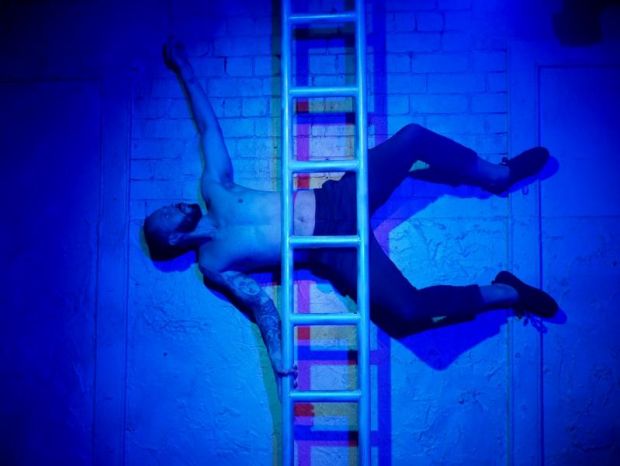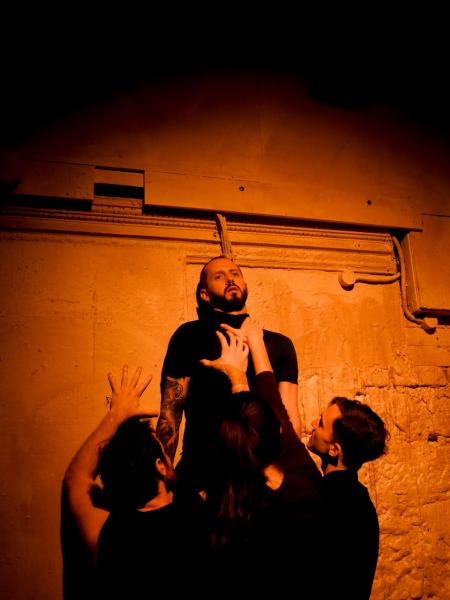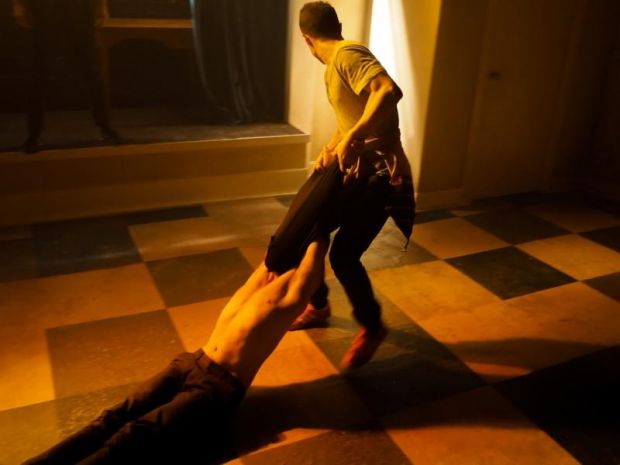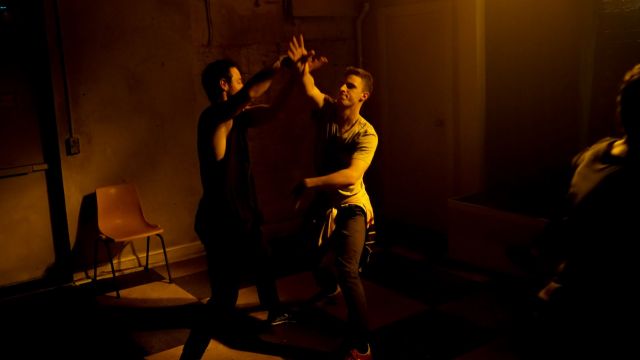Our Blood Runs in the Street
Our Blood Runs in the Street is a thoughtful and sensitive stage exploration of those lives lost to gay hate crimes in Australia in our recent past. The piece does not focus on any one individual, but one story that will be familiar is US maths student, Scott Johnson, whose ‘fall’ from a cliff in Sydney in 1988 was immediately ruled suicide by local police and a coronial inquest. The police dismissed the possibility of hate crime, despite the fact that – as this performance piece so shockingly highlights – there were dozens of similar deaths in well-known gay beats and local gangs were known to police.

From its source – the 2019 NSW Parliamentary Inquiry into Gay and Transgender hate crimes between 1970 and 2010 – this material is Sydney-centric, including the performers, most trained in Sydney, who are multidisciplinary in acting, dance, directing and writing: Andrew Fraser, David Helman, Alfred Kouris, Wern Mak, Eddie Orton, Ross Walker, plus writer and performer Cassie Hamilton bringing the transgender voice to the play. The script is based on interviews, court and police transcripts, and uses scene recreations, moving between historical murders, interviews with LGBTQ+ activists, some now in their 70s and 80s who were there at the start of the rights movement. The piece was created by award-winning director and movement director, Shane Anthony, who is co-artistic director of Chopt Logic, a collaborative Sydney-based group dedicated to socially important stories. The verbatim style works to hit home the reality of a stark situation. But the real strength is in watching this compelling cast who work seamlessly as an ensemble, as they take on the characters in a range of scenes, underlined with choreographed movement. The movement style is a brilliant technique, evoking violence and trauma without having to show the graphic scenes over and over – and a powerful way to transcribe the emotions between the words, the ripple effects of violence. Because, as well as those lives tragically cut short, there are survivors, but at what cost? One young man locks himself away in his flat and doesn’t go out at all, only to joke that somehow he later tested positive for HIV. This streak of humour and resilience runs through the piece – it is not easy subject matter, but is an important reminder of a grave injustice.

The set design by Veronique Bennett (with associate Pete Goodwin in Brisbane) and lighting by Richard Whitehouse (with associate Nathaniel Knight) cleverly evoke a range of settings, from an 80s nightclub to a back lane off Oxford Street, to the cliff faces of Tamarama and Bronte Beaches at Bondi. The sound design by Nate Edmondson and composition by Damien Lane underline the drama, with a pathos-filled soundtrack of 80s hits by Bronski Beat. The show opens with ‘Cry Boy Cry’: the 1980s were so much fun, hey? As it turns out, not for many of our LGBTQ+ friends and their families. One scene that resonated was when the cast littered the stage with the stack of unsolved murder cases – lives reduced to faceless, dispassionate files of paper. After 90 minutes of portraying the deaths of too many innocent men, the cast were visibly shaken. And I think the audience was shell-shocked too. The final voice was a recording of Scott Johnson’s brother, in March this year, when his brother’s murderer was finally brought to justice – after more than three decades. A somewhat positive note, which I would have preferred be taken on by one of the actors. But that is a minor note in this powerful work whose message will resonate long after the final blackout.

There are only four performances of Our Blood Runs in the Street. After the matinee on Saturday 16 July, Metro Arts opens the space to the LGBTQ+ community to debrief about the issues that the play deals with.
Find out more: https://metroarts.com.au/event/runs-in-the-street/
Beth Keehn
Photographer: Jasmin Simmons
Subscribe to our E-Newsletter, buy our latest print edition or find a Performing Arts book at Book Nook.

